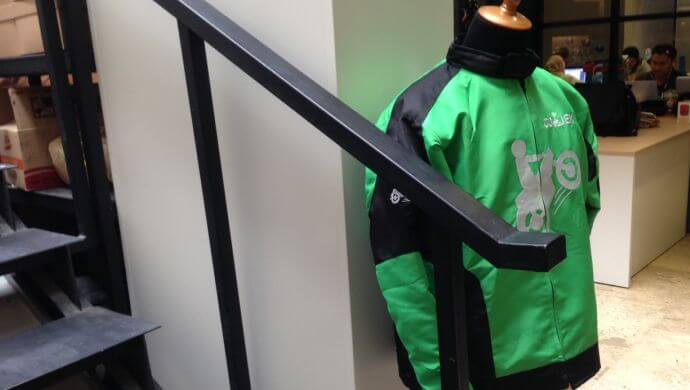Not again, Go-Jek. Not again

If we are to do a quick media monitoring analysis on all the instances when Go-Jek made headlines, the coverage can be divided into four main categories:
- Funding and acquisitions
- Product launch and (unprecedented) partnerships
- Ride-hailing startups versus government regulation
- Driver-partners protests
On Monday, Indonesia’s favourite ojek drivers decided to open the week with a bang by conducting yet another protest at the company’s head office in Kemang, South Jakarta. Detik reported that about 80 driver-partners flocked in to protest against a new performance monitoring scheme and tariff cuts — not the first time such issue has been brought up.
According to the report, Go-Jek has introduced a new tariff which starts at IDR15,000 (US$1.1) for up to five kilometer, a drastic decrease from the previous number of IDR25,000 (US$1.9).
Meanwhile, the new performance monitoring scheme will also penalise a driver for cancelling a booking.
By the end of the day, Go-Jek had accepted representatives from the protesting group and began discussion on the matters at hand.
Also Read: Go-Jek wins big at Indonesian chapter of Asean Rice Bowl Startup Awards
Look, here’s the problem:
I’m tired of writing bad news about a company which is often dubbed as Indonesia’s unicorn savior unicorn — especially since Independence Day is coming up and Indonesians are in the need to celebrate something (Politics have been devastating, the new terminal in Soekarno-Hatta is a disaster, and tomorrow is badminton finals in the Olympics. You get the idea).
I also do not think that Go-Jek needs to be reminded that their driver-partners are the company’s greatest asset — as they are the one who interacts directly with customers everyday.
But, let’s stay optimistic, I prefer to see this as a wake-up call.
Despite having been launched since 2010, Go-Jek’s claim to fame began only in the midst of 2015, where the company announced a surprisingly low tariff as part of a Ramadan promo. The campaign was widely accepted; Go-Jek saw a sharply increasing demand, went on a beast-mode in hiring, and became a household brand in the country.
In order to maintain its customer base, the company continues on subsidising its tariff to this day. Despite CEO Nadiem Makarim’s claim on Go-Jek’s financial status, there is no way that he can convince the world that one can build a sustainable business based solely on promos and discounts.
Also Read: Go-Jek scores Indonesia’s top trending searches in Google. No surprises there!
Now back to the driver-partners issue.
I strongly believe that yesterday’s incident should be a start for Go-Jek to build better, stronger, more open communications with its driver-partners.
If we look at past incidents, the fact that there are groups of Go-Jek drivers demanding to have their status upgraded from ‘partner’ to ‘fulltime employee’ indicates two issues:
- There is a misunderstanding of what being involved in sharing economy entails
- There are some rights that are not being fulfilled by the company
So far Go-Jek has been silent about what caused the changes in their tariff and performance monitoring system, and that cannot stand. While the company can never guarantee 100 per cent happiness of all the drivers using the platform, transparency and openness should be a priority.
Why is this important for Go-Jek, and any other ride-hailing startups? Because, according to a new report from DailySocial on digital consumer behaviour, customers value service above everything when choosing a particular ride-hailing service over the competition.
About 39 per cent of respondents answered ‘good service’, with ‘affordability’ coming in second at 23 per cent. This alone destroyed the notion that customers are using ride-hailing service solely for its low price; they are using it for an all-around user experience.
And I do not think a grumpy Go-Jek driver can give excellent customer service.
The post The four times Go-Jek made the news — and why this time should be a trigger for change appeared first on e27.